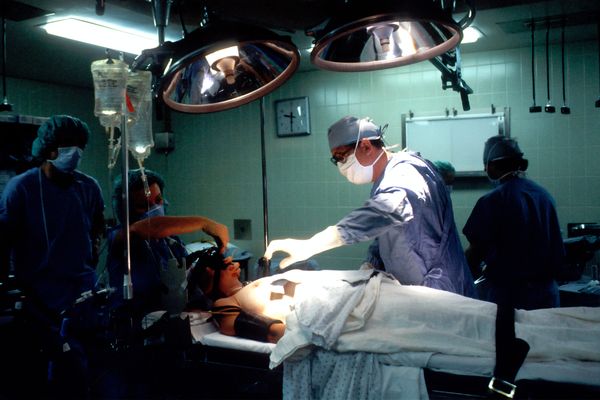The engineering profession is one that comes with a wide array of duties and responsibilities—none of which should be taken lightly. Because the obligations of engineers are many, it can sometimes be difficult to decide which ones take priority. One that should be of upmost importance, however, is the responsibility of the engineer to ensure that information of emerging and novel technologies is clear and well-defined for the sake of the public, as well as any implications, potential benefits, drawbacks, and risks. The engineer undoubtedly plays a pivotal role in contributing the technical expertise required to discern whether a new technology or emerging field within engineering is worth a significant investment.
Oftentimes within the engineering profession, when working with novel technologies, it is necessary to regard the safety, health, and welfare of the public with more value than one’s own beliefs and moral philosophies. One extreme example of this is the role of Albert Einstein within the Manhattan Project. In his letter to President Franklin D. Roosevelt alerting the commander-in-chief of the possibility of “extremely powerful bombs of a new type” being built by Germany and recommending that he keep in contact with “the group of physicists working on chain reactions in America,” Einstein, a well-known pacifist, advocated for nuclear war, going against his personal beliefs on the issue.[1] When presented with a grave situation in which the safety of America was at risk, Einstein viewed it with a utilitarian perspective and felt that he had the responsibility as a scientist to warn the president about the potential danger and drastically harmful effects that nuclear bombs could have on the American society as a whole. Einstein’s expertise and credibility in the field was a major contributing factor towards and essentially catalyzed the president’s decision to enter into the race for the world’s first atomic nuclear bomb.
A crucial component of the debate about scientific research into new technologies is the acceptance and approval of the public. Scientific advances in the field of biotechnology are frequent, although they usually occur with some risk and skepticism. One particular advance involves the use of human tissue, which is an increasingly controversial issue to a wide variety of communities. The body as perceived by society has deep connotative and implicative meanings to people, as it can be defined as one’s unique identity and individual ties to a particular racial, ethnic, or cultural community.[2] When searching for the next scientific breakthrough, scientists must consider these social implications of the human body before attempting to infringe on a human being’s right to their own body. With regards to scientific research on human tissue and the associated scientific breakthroughs and possibilities, the potential benefits do not seem to be worth the risk, struggle, and effort to make human tissue research a widely accepted norm within today’s society. It is the responsibility of the scientist to judge whether a particular endeavor that might be considered gratuitous to some is truly worth pursuing, in addition to effectively communicating the benefits and drawbacks of conducting such research.
Because of the importance for scientists and engineers working in emerging fields to address the public whenever a novel technology comes into existence, it is essential that these scientists and engineers are proactive in reaching out to the public so that the public does not remain uninformed. A group of leading scientists in the field of biotechnology did so discussing the “rapid development…of a simple, inexpensive, and remarkably effective genome engineering method known as clustered regularly interspaced short palindromic repeats (CRISPR-Cas9)”.[3]
Some possible applications of this technology include the treatment of human diseases on the molecular level and the correction of DNA mutations in animals and potentially humans. This technology can also be used to alter the genetic makeup of zygotes and ensure that this new DNA is passed on to the organism’s offspring. For obvious reasons, the scientists studying this technology would like to proceed slowly and cautiously, but in order to proceed at all, require public feedback and opinion. The effort of the scientific community in fostering public discourse about emerging technologies is imperative in the development of these technologies; public reception and applicability to the public are major factors in determining whether to conduct research in a particular field of potential interest.
In addition to acute problem-solving skills, vast knowledge of math and science, and creativity, an engineer needs to understand the responsibilities that come with the profession and be able to determine which ones take precedence in order to be successful. Whenever a decision becomes difficult to make, the engineer should use good judgment and look at the problem within the context of multiple ethical frameworks in order to arrive at the best decision. This process could require the engineer to prioritize the public over the individual, or the rights of the individual over the benefit of a company or potential field of research. Besides making difficult decisions regarding new and unfamiliar technologies and fields of study, the engineer should also be held responsible for informing the public about these technologies and receiving and considering the feedback of the public. Beyond this, the engineer must decide whether a field of study is even worth pursuing. The responsibilities of the engineer are innumerable, simply because the engineer works firsthand with discovering new technologies, finding scientific breakthroughs, and deciding whether these technologies can offer more benefits than risks to the public all while prioritizing the safety of all parties involved.
[1] For more context and details, read the Einstein-Szilárd letter to FDR, the Szilárd petition, and the Franck Report.
[2] See Lori Anderson and Dorothy Nelkin’s article, “Whose body is it anyway? Disputes over body tissue in a biotechnology age,” for a more detailed discussion on the meaning of the human body as defined by society as well as by the scientific community.
[3] See David Baltimore, et. al., “A prudent path forward for genomic engineering and germline gene modification,” Science, pp. 36-38.





















